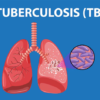Understanding Depression through Ayurveda: A Holistic Approach to Healing
Understanding Depression through Ayurveda: A Holistic Approach to Healing is a complex mental health condition that affects millions of people worldwide. While conventional medicine often emphasizes pharmacological treatments, many individuals are turning to alternative therapies, including Ayurveda, to find relief. Ayurveda, an ancient system of medicine that originated in India over 5,000 years ago, offers a holistic approach to mental health, addressing not just the symptoms but the underlying imbalances that contribute to depression.
The Ayurvedic Perspective on Depression

In Ayurveda, mental health is viewed through the lens of the three doshas: Vata, Pitta, and Kapha. Each dosha represents a combination of the five elements—earth, water, fire, air, and space—and has its own characteristics. Imbalances in these doshas can lead to various physical and mental health issues, including depression.
- Vata Imbalance: When Vata, associated with air and space, is out of balance, it can lead to anxiety, restlessness, and feelings of fear. Individuals may experience mood swings and a lack of mental clarity.
- Pitta Imbalance: Pitta is linked to fire and transformation. An excess of Pitta can manifest as irritability, anger, and frustration. People with Pitta imbalances may feel overwhelmed by their emotions, leading to depressive states.
- Kapha Imbalance: Kapha represents earth and water, and an excess can result in lethargy, attachment, and a sense of heaviness. This imbalance often leads to feelings of sadness and hopelessness.
The Mind-Body Connection
Ayurveda emphasizes the intricate connection between the mind and body. It recognizes that mental health is deeply intertwined with physical health, lifestyle, and emotional well-being. Stress, poor diet, lack of exercise, and negative thought patterns can all contribute to imbalances in the doshas.
Ayurvedic Treatment Approaches for Depression
Ayurveda adopts a multi-faceted approach to treating depression, focusing on diet, lifestyle changes, herbal remedies, and therapies that promote balance and well-being.
1. Dietary Recommendations
Food plays a crucial role in Ayurvedic medicine. Each individual is unique, and dietary recommendations are tailored to their dosha and imbalances. Here are some general dietary guidelines that can help alleviate symptoms of depression:
- Incorporate Nourishing Foods: Emphasize whole grains, fresh fruits, and vegetables. Foods like oats, rice, and sweet potatoes can help ground Vata, while cooling foods such as cucumbers and leafy greens can pacify excess Pitta.
- Healthy Fats: Include healthy fats like ghee and olive oil, which can support brain health and improve mood.
- Spices: Use warming spices such as turmeric, cinnamon, and ginger, which have anti-inflammatory properties and can help boost mood.
- Stay Hydrated: Drink plenty of warm water and herbal teas to keep the body hydrated and promote digestive health.
2. Lifestyle Changes
Making conscious lifestyle choices is vital for maintaining mental health. Here are some Ayurvedic lifestyle practices that can help manage depression:
- Daily Routine (Dinacharya): Establishing a daily routine can bring structure to life and reduce feelings of chaos. This includes waking up early, practicing yoga or meditation, and maintaining regular meal times.
- Yoga and Meditation: Both practices are essential in Ayurveda for calming the mind and body. Yoga postures can release tension and improve circulation, while meditation helps cultivate mindfulness and emotional stability.
- Adequate Sleep: Prioritize quality sleep by establishing a calming bedtime routine. Aim for 7-8 hours of restful sleep to rejuvenate the mind and body.
3. Herbal Remedies
Ayurvedic herbs have been used for centuries to promote mental well-being. Some of the most effective herbs for treating depression include:
- Ashwagandha: Known as a powerful adaptogen, ashwagandha helps the body cope with stress and anxiety, promoting a sense of calm.
- Brahmi (Bacopa monnieri): This herb enhances cognitive function and memory while reducing anxiety and improving overall mood.
- St. John’s Wort: Often used in Western herbal medicine, St. John’s Wort is also recognized in Ayurveda for its antidepressant properties.
- Turmeric: With its active compound curcumin, turmeric has anti-inflammatory properties that can benefit mental health.
4. Therapeutic Treatments
Ayurveda offers various therapies designed to restore balance and promote healing:
- Abhyanga (Ayurvedic Massage): This therapeutic oil massage nourishes the body and calms the nervous system, helping to alleviate symptoms of depression.
- Shirodhara: A unique treatment where warm oil is poured gently over the forehead. This therapy calms the mind and helps reduce anxiety and stress.
- Panchakarma: A detoxification process that includes various therapies to cleanse the body of toxins. This can help restore balance to the doshas and improve mental clarity.
Addressing the Root Causes
One of the primary strengths of Ayurveda is its focus on understanding and addressing the root causes of depression rather than just managing symptoms. This holistic approach encourages individuals to reflect on their emotional, physical, and spiritual well-being.
1. Emotional Healing
Emotional traumas and unresolved issues can significantly contribute to depressive states. Ayurvedic practices encourage individuals to engage in self-reflection, journaling, and seeking support from a qualified practitioner who can guide them through their healing journey.
2. Spiritual Growth
Ayurveda emphasizes the importance of spiritual practices such as meditation, mindfulness, and connecting with nature. These practices can foster a sense of purpose and belonging, which are crucial for mental well-being.
Conclusion: A Path to Balance and Healing
Depression is a complex condition that requires a multifaceted approach for effective treatment. Ayurveda offers valuable insights and tools to promote mental health and emotional balance. By understanding one’s unique constitution and making conscious choices regarding diet, lifestyle, and therapies, individuals can embark on a journey towards healing and wellness.
It’s essential to consult with a qualified Ayurvedic practitioner to create a personalized plan that aligns with your specific needs. By embracing the principles of Ayurveda, you can cultivate a deeper understanding of yourself and work towards achieving emotional balance, ultimately leading to a happier and healthier life.
Final Thoughts
While Ayurveda provides a rich framework for understanding and addressing depression, it’s important to remember that mental health is complex and individual. If you or someone you know is struggling with depression, consider seeking professional help alongside Ayurvedic practices. The integration of conventional and alternative approaches can create a comprehensive path towards healing and resilience.








Leave a reply